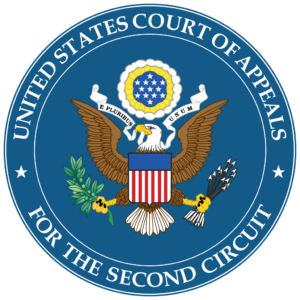Clinic Represents Media Orgs in FOIA Amicus
Comms_RAs's bookmarks 2021-09-02
 On August 27, 2021, the Cyberlaw Clinic filed an amicus brief on behalf of the Center for Investigative Reporting, the Media Law Resource Center, and the MuckRock Foundation in the United States Court of Appeals for the Second Circuit. The case, ACLU v. ICE (Second Circuit No. 21-1233), raises questions about how database design choices affect the availability of public information under the Freedom of Information Act (“FOIA”). The amicus brief argues that technical, legal, and public policy factors all weigh in favor of using databases to facilitate, rather than hinder, the public right of access to government records.
On August 27, 2021, the Cyberlaw Clinic filed an amicus brief on behalf of the Center for Investigative Reporting, the Media Law Resource Center, and the MuckRock Foundation in the United States Court of Appeals for the Second Circuit. The case, ACLU v. ICE (Second Circuit No. 21-1233), raises questions about how database design choices affect the availability of public information under the Freedom of Information Act (“FOIA”). The amicus brief argues that technical, legal, and public policy factors all weigh in favor of using databases to facilitate, rather than hinder, the public right of access to government records.
In the underlying FOIA request, the ACLU Immigrants’ Rights Project sought information about apprehensions, detentions, risk assessments, and deportations from U.S. Immigration and Customs Enforcement (“ICE”). While the ACLU did not ask for any identifying information, it did ask that the records be collated by person, so that it was clear when a set of enforcement actions applied to the same anonymous person. ICE refused to provide this collation, arguing that (1) records were collated by individuals’ A-Numbers, an exempt piece of information and (2) replacing the A-Numbers with anonymous identifiers would constitute creation of “new records.” The ACLU sued, the Northern District of New York granted summary judgment in favor of ICE, and the ACLU appealed to the Second Circuit.
In the Clinic brief, amici point out that ICE’s position is technical inaccurate, legally incorrect, and in conflict with the public policy behind FOIA. In reality, relational databases like the ones used by ICE are designed to preserve the relationships between discrete chunks of information. This allows them to be recombined in nearly any configuration without needing to alter the underlying information. The ACLU’s request, rather than being technically impossible, is exactly why relational databases exist. Moreover, the law is clear that sorting or searching data that already exists in a database does not amount to creation of a new record. Collating anonymously by person is functionally equivalent to these well-accepted practices. Finally, ICE’s position is at odds with the purpose of FOIA. In essence, ICE wants to be able to lock up it’s data and throw away the key–or at least withhold the key as exempt. That is in direct conflict with the long-standing presumption of disclosure under FOIA.
The Cyberlaw Clinic is honored to have represented the amici and hopes the Second Circuit will take into account their expertise. The brief was authored by clinical instructor Mason Kortz, and builds on the arguments made in prior Clinic briefs in CIR v. DOJ (authored by Spring 2019 students Alena Farber, Ariel Hoffman, and LeHeng Li) and Everytown v. ATF (authored by Spring 2020 students Sarah Alawi, Stephany Bai, and Lauren Yonkoski).